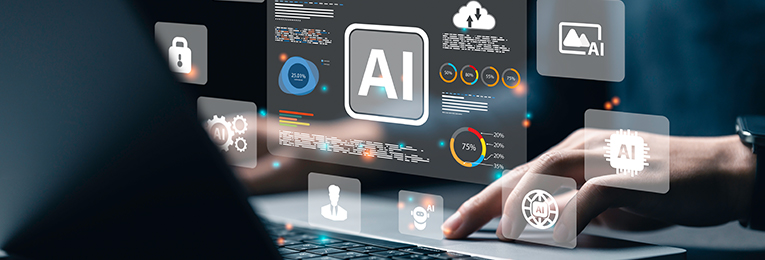Artificial Intelligence Will Create A Circular Economy Of People
Swim with the tide, not against it
Posted on 08-21-2024, Read Time: 5 Min
Share:

The notion of a ‘circular economy’ is the polar opposite of a throwaway society. The emphasis is on recycling and repurposing existing materials, giving them an extended life. Yet as AI upends long-cherished career paths this notion will extend to people.
A 2023 Goldman Sachs report estimated that AI will displace or downgrade 300 million jobs over the next decade. Unlike the robotic boom of the 1980s that saw the loss of blue-collar jobs, this latest workplace revolution will impact white-collar roles. Financial advisers, auditors, lawyers, and even some software developers could see their jobs change or disappear.
On the flip side, AI will directly and indirectly create new jobs. A World Economic Forum survey revealed that 75% of companies said they will adopt AI, with twice as many respondents believing it will lead to overall job growth.
Naturally, there will be stiff competition for those in the most sought-after disciplines. AI and machine learning specialists, data analysts, and big data specialists will be in high demand. Those with analytical, creative thinking, leadership, and empathy skills will also be at a premium.
HR Will Shift on Its Axis
The world of HR will be turned upside down. AI will help to eliminate human bias from candidate assessment, providing a major input to screening and talent acquisition, particularly in the early stages. Self-learning chatbots will transform the resolution of employee enquiries and virtual assistants will eliminate mundane tasks. But the real revolution will be in the role of HR from career dictator to career enabler with ‘learning and development’ elevated to a boardroom topic.It is estimated that nearly half of the workers’ core skills will change in the next five years. Even those who stay in the same role will need to update their skills to be successful. Managing this reskilling for a constantly shifting circular economy of people will be a primary undertaking for HR professionals and business leaders.
Organizations will need to help employees develop non-linear career paths. This means giving staff more say in their career direction and empowering them to zig-zag from one discipline to another. Smart tools will help this process. For example, aided by AI, it will be possible to recommend the most appropriate learning paths based on skills, adaptability, historical inputs, and other factors. Imagine it to be like Netflix recommendations but more sophisticated.
Swim with the Tide, Not Against It
If ‘learning and development’ are the new rock n’ roll of HR, then ‘big data’ is surely the record label. Big data analytics will be an indivisible part of the circular economy of people and predicated on a deep understanding of people, business, and organizational needs.We must not fear but embrace this new paradigm and HR departments ought to be amongst the first to adopt AI tools.
There will be a lot of noise about AI taking people’s jobs. Don’t waste energy on doom-and-gloom headlines. The issue is not about mass unemployment but the mass redeployment of people. That’s what you must focus on. The winners will be those who swim with the tide, not against it.
Author Bio
 |
Natalie Wintermark is the Chief People and Culture Officer at Glamox, one of the world’s leading lighting companies. She has over 20 years of international experience in strategic HR, business transformation, and talent development in major companies, including Yara ASA and ABB Group. |
Error: No such template "/CustomCode/topleader/category"!

